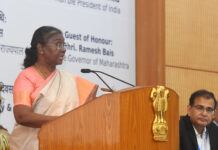
Last year NHS guidelines recommended that doctors should ask about sexual orientation of patients. The move has doctors split down the middle. India perhaps is not even ready for the discussion
Two articles in The BMJ today argue on the pros and cons of what has become a very thorny issue in England – a debate that perhaps, India is not even prepared for.
In late 2017, NHS England released guidelines recommending that health professionals ask all patients about their sexual orientation in order to improve services for non-heterosexual patients. After decades of campaigning from lesbian, gay, bisexual and trans (LGBT) charities, sexual orientation is now a protected characteristic that is written into the Equality Act 2010.

General practitioner and research fellow Richard Ma, from Imperial College London says all patients should be asked about their sexual orientation but the right environment should be created that they feel comfortable doing so.
“We must create an environment where people can disclose information on their sexual orientation safely. According to a survey of more than 3000 health and social care staff, only 9% received training on needs of LGBT people; but half said that their training covered only sexual health; 16% admitted they would feel uncomfortable asking patients about their sexuality and, in contrast, they felt more comfortable asking about other protected characteristics, such as disability. Perhaps the health service has outdated sexual attitudes and we need to catch up,” Ma writes.
He also talks of flaws in recognising LGBT health needs. “Sexual orientation monitoring is necessary to make the health service for LGBT patients fairer. If we don’t count our LGBT patients, they don’t count.” Ma concludes.
But Michael Dixon, a general practitioner, says that it should be up to the individual judgement of GPs as to when it’s appropriate or useful to ask such questions about patient sexual orientation. He says that whilst there are health benefits from knowing a patient’s sexuality, the approach of asking ‘all’ patients is wrong. “Apparently this is all to stop discrimination under the Equality Act, but surely the best way to avoid discrimination is by not knowing people’s sexuality in the first place” he says.
In his brief comments, Dixon does not mince words in what he thinks about the idea.
@This stupid idea symbolises the continuing erosion of medical autonomy beckoning an age when GPs become politically correct robots practising medicine by numbers. It is yet another example of overmanagement in general practice and will see yet another flood of clinicians escaping to the Antipodes or out of medicine altogether in order to elude Big Brother’s silly rules. The secretary of state for health recently warned that we are on the verge of losing the family doctor. Surely someone should be doing something about that rather than filling our time with more useless tasks?”
In a linked patient commentary, Tamás Bereczky, from the European AIDS Treatment Group, says whilst discussing sexual orientation between doctors and patients can be embarrassing, healthcare professionals should be able to talk about all sensitive topics.
“Visibility and honest discussion can also eventually reduce stigma” he concludes.













